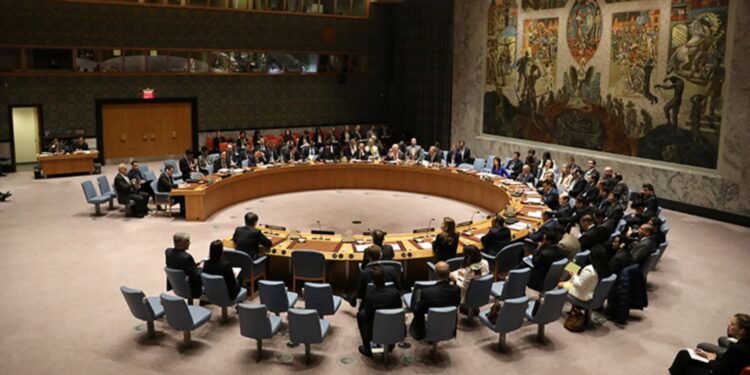The UN is at the center of heated discussions this week, with countries combining forces in efforts to create a global model that will guide AI governance.
Delegates from more than 190 member states, as well as top AI scientists, ethicists and industry representatives, are gathering for a series of tense discussions aimed at bridging divisions over the future of this game-changing technology.
The urgency is real, because AI is advancing at pace, and spreading through society, from healthcare and finance to security and education. Delegates have called for widespread AI use to be governed by guidelines that seek to counter the dark visions of the technology as well, such as the weaponization of AI, job loss due to machine-learning and human rights concerns.
Already in the early days of the meeting there have been several flashpoints. An interesting topic of conversation is the amount of regulation necessary.
Some countries push for a strict, legally binding international treaty to hold attackers accountable and to avoid misuse, akin to the regimes that exist around the world for nuclear non-proliferation and chemical weapons. They stress the urgency of consistent sets of ethical standards and strong enforcements against possible harm.
By contrast, others recommend a loose, principles-based model, which prioritises the need to encourage innovation and prevent restrictive regulation from halting its advancement.
They recommend the establishment of non-binding guidelines and best practices that are flexible and interoperable with the evolving nature of AI, as well as contextual to different national circumstances.
Data governance is another widely debated issue. Given that AI algorithms depend to a great extent on such large-scale data, conversations indicate that there is serious consideration of shaping global standards pertaining to data privacy, data security and cross-border data flows. “Incubating these safeguarding technologies,if such tools can be built reliably to prevent discriminatory outcomes due to biased data, as well as guaranteeing fair access to the rewards of AI, is also a priority.
Additionally, the imminent effects of AI on the future of work are a topic of great interest. Delegates are discussing techniques to address job displacement through retraining and social safety nets, as well as how AI can be employed to trigger new economic development.
Their participation extends the complexity of the discussions to include non-state parties, such as tech companies and civil society. Even though their knowledge is believed to be priceless, there are lingering questions specifically about what role they play in global AI governance and how to hold them accountable.
The summit will continue Wednesday through Friday this week with the expectation of establishing a base document with common principles and potential avenues for transnational collaboration among nations for governing AI.
Although consensus on a broad, globally accepted approach to AI is still an elusive goal, this conversation reflects a broadening consensus around the world in favor of collectively shaping the future of AI in a responsible and ethical manner. The result of those discussions in New York is expected to inform AI’s future development and its role in the world.










![Online Scam Cases Continue to Rise Despite Crackdowns on Foreign Fraud Networks [Myanmar] Online Scam Cases Continue to Rise Despite Crackdowns on Foreign Fraud Networks [Myanmar]](https://sumtrix.com/wp-content/uploads/2025/06/30-12-120x86.jpg)




